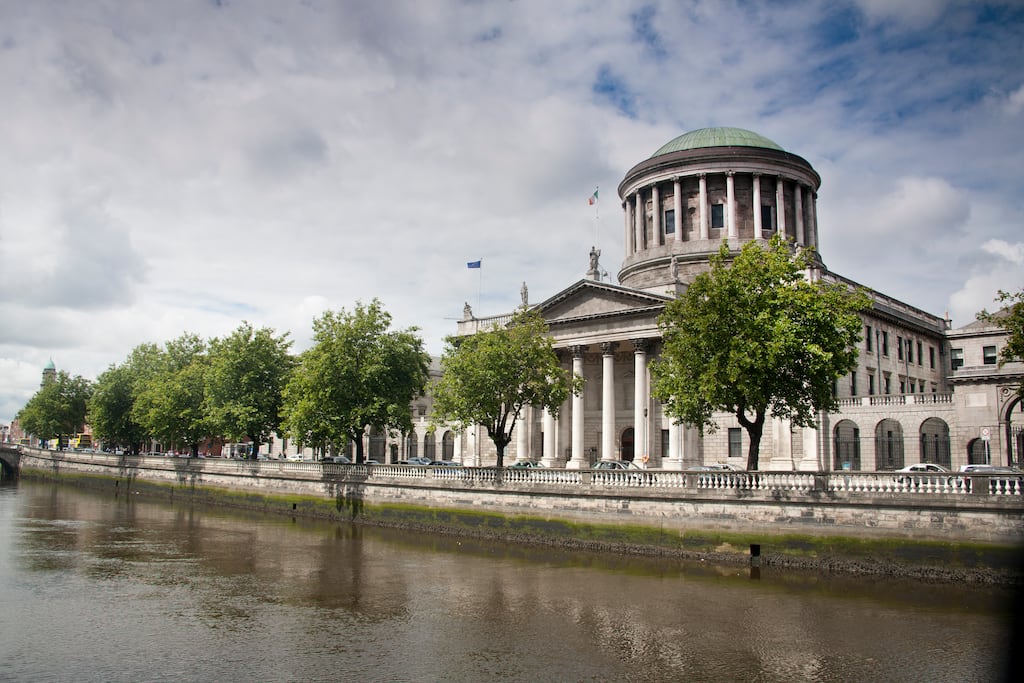The High Court has made an order winding up fit-out specialist construction company Mac Interiors.
Mr Justice Michael Quinn made the order after being informed by the company’s examiner, Kieran Wallace, it was not possible to put together a modified rescue plan with a new investor, which if approved by the court and its creditors, would have saved the company.
The firm had 31 full-time employees and employed many more as subcontractors. It owes its creditors more than €27 million and had entered examinership earlier this year.
It had traded very successfully in Ireland, Britain and continental Europe for many years, with clients including Microsoft, AIB, Ryanair, Pinterest, Barclays Bank and Citibank.
Will AIB pull State stock buyback terms if shares fail to rally by agm?
Car finance: what are the options for buying your next car?
Ireland’s hopes of a net-zero economy are floating in the wind
Shane Jennings outlines his homecare vision: ‘People want to remain at home and it is cheaper for the taxpayer’
However, it was badly affected by the pandemic restrictions curbing construction and subsequent inflation on construction materials.

Budget 2024: What it means for households and businesses
Late last week the judge ruled that the court lacked the jurisdiction to approve a scheme of arrangement put together by Mr Wallace of Interpath Advisory that, if approved, would have allowed the firm to successfully exit examinership and survive as a going concern.
The Revenue Commissioners had challenged the application.
After the court’s decision, a proposed investor who had committed funds towards the company’s survival scheme pulled out of the deal.
The examiner then held talks with a potential new investor regarding the possibility of putting together a “modified” scheme of arrangement.
However, on Wednesday morning, James Doherty SC, for the examiner, told the court it had not been possible to put a set of revised proposals before the court. The only option was to make an order winding up the company.
Counsel said Mr Wallace had at all times acted in the best interests of the creditors and was prepared to act as the company’s liquidator.
Counsel for the company, John Lavelle, said his client agreed there was no option other than to place the firm into liquidation.
Given the amount of work already done by Mr Wallace and his familiarity with the company, counsel said that the examiner should be appointed as liquidator.
This, he said, would result in savings in relation to costs and time of the liquidation process.
Dermot Cahill SC, appearing with Sally O’Neill, agreed the company should be wound up. Counsel asked the court to appoint its nominee, Aidan Murphy, as liquidator.
Counsel said Revenue was the firm’s largest creditor and accounted for approximately half of Mac Interiors’s debt.
The judge said it was accepted that no criticism had been made by either the court or Revenue of Mr Wallace. He noted the submissions that Mr Wallace’s appointment as liquidator would save time and costs.
However, the court was appointing Mr Murphy as liquidator on the grounds that Revenue is the company’s main creditor.
In his judgment last week, Mr Justice Quinn rejected the examiner’s original proposal for returning Mac Interiors on the basis that the only impaired creditor class had been “erroneously formed”.
Revenue is owed €14.3 million, including €13.2 million in warehoused debt that would have been almost entirely written down.
As a consequence of this finding, no meeting of a validly formed class of impaired creditors has accepted the proposal, which involved a proposed investment from Quartz Holdco Limited comprising a loan of €2.25 million and €1.5 million working capital.
All other tests were satisfied and, the undisputed evidence showed, the plan would provide the company with a reasonable prospect of survival, he noted.














